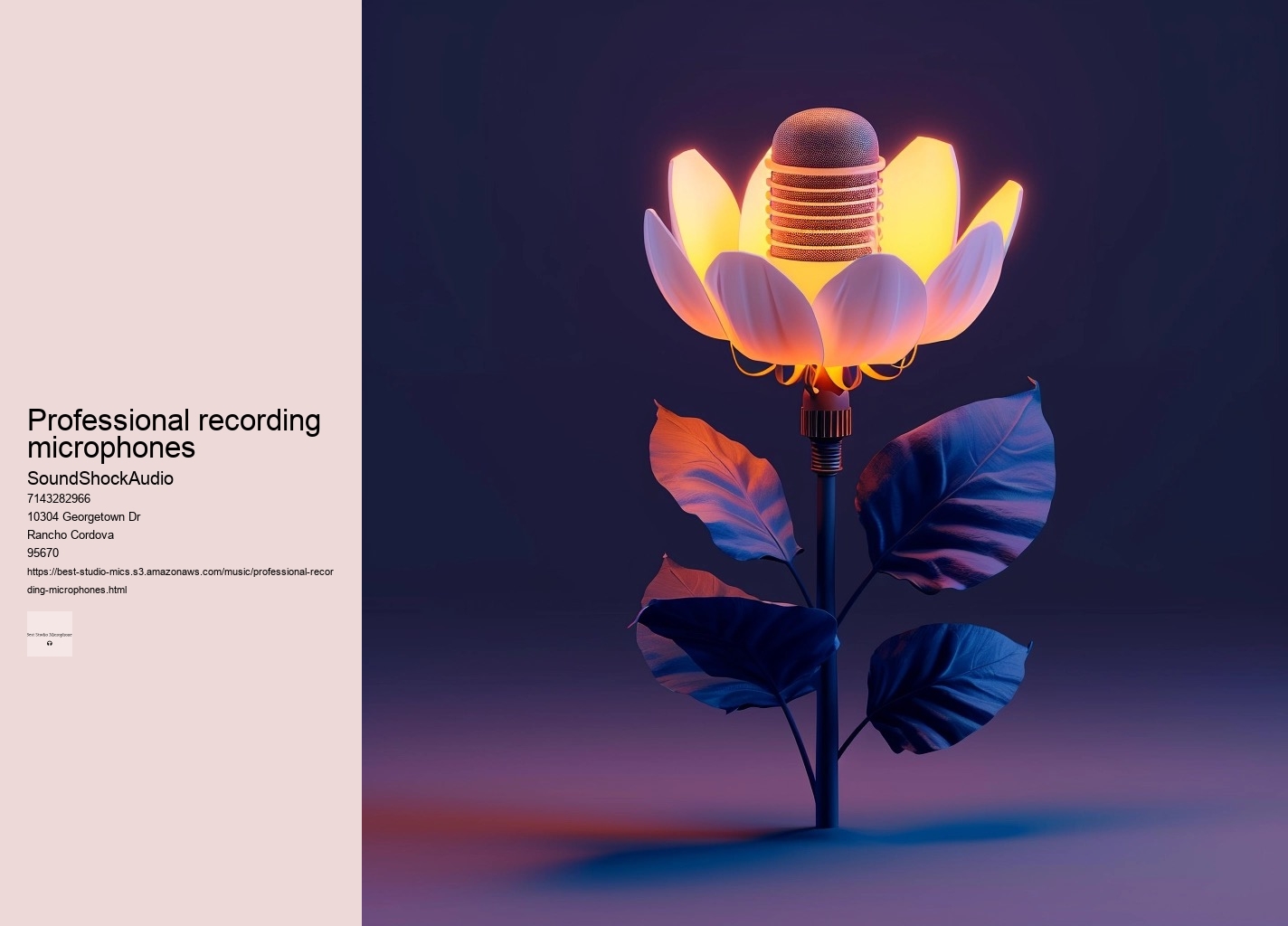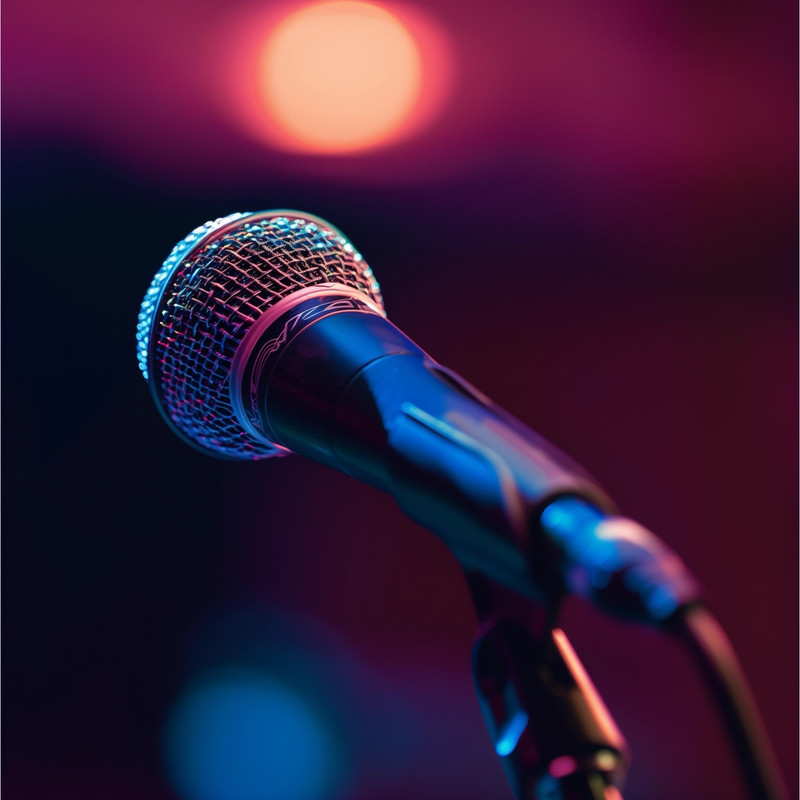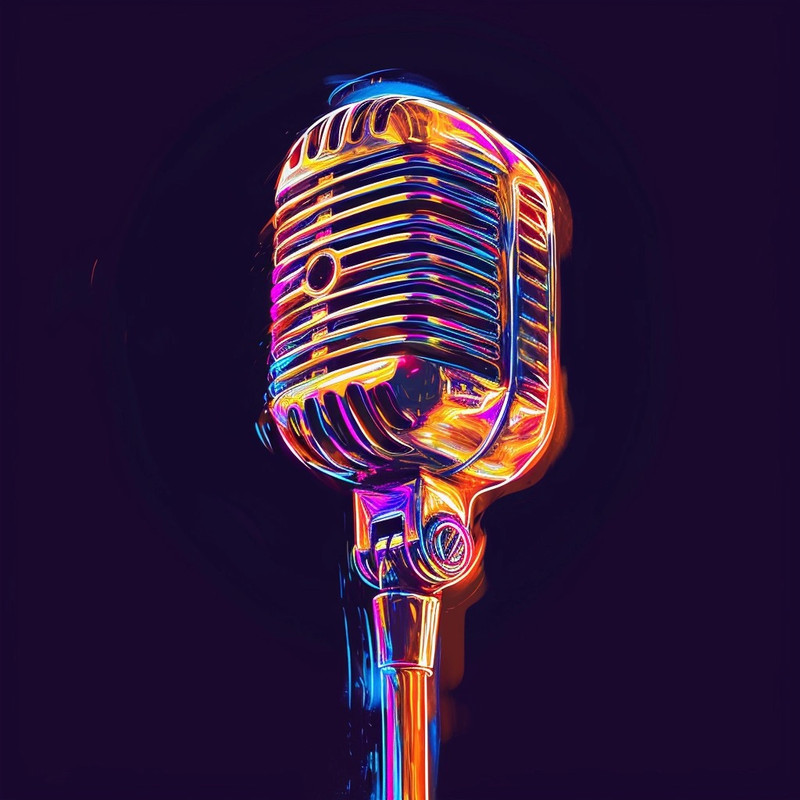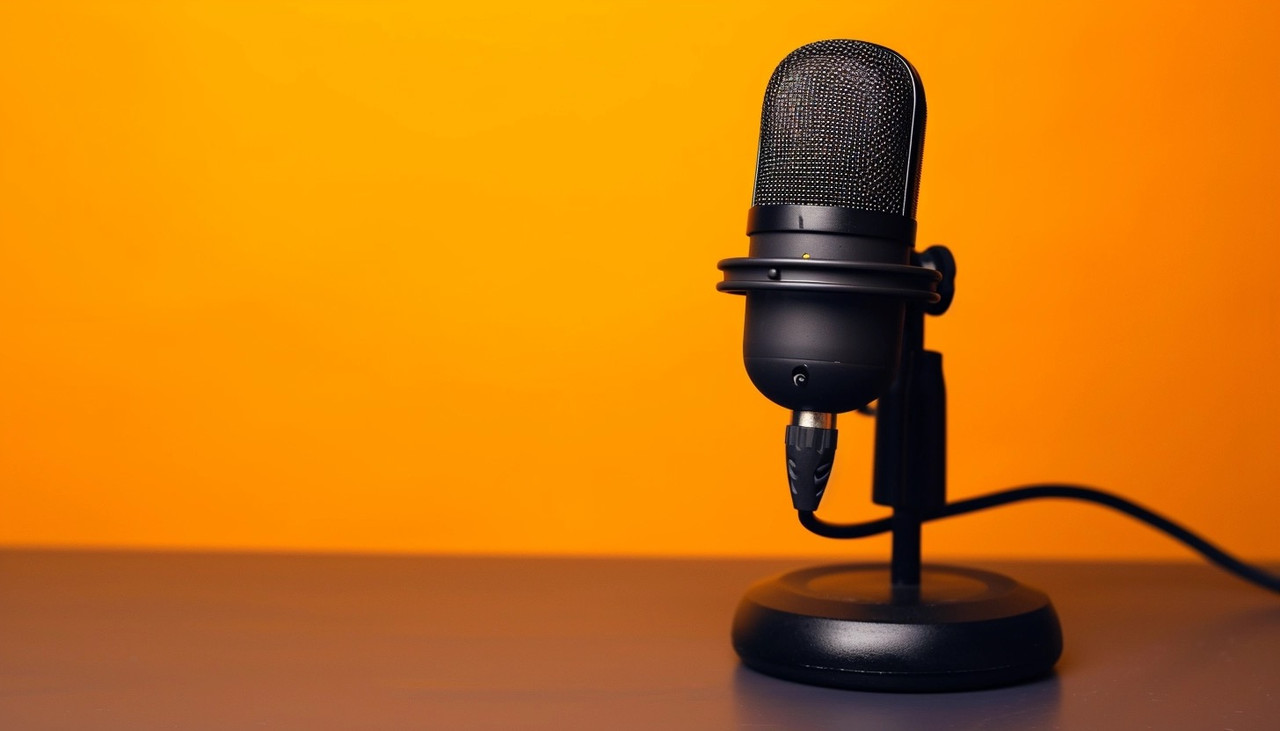

JavaScript is required for the best possible experience on this site. The sound is full and clear, and much more linear than dynamic mics. Double-click to create content.
Sound perfection seekers must navigate a labyrinth of specifications and performance traits to unearth microphones that transform amateur recordings into professional masterpieces. The design includes a twin-triode valve 6922 and a gold-sputtered 1" capsule.
The key takeaway here is that there's no one-size-fits-all when it comes to choosing the right microphone; it all boils down to individual needs, application context, and personal preferences. Check the polar pattern of a microphone before buying one. To find out which microphone to buy, check out the best studio microphones on SoundShockAudio..
They take the low-level output from microphones and boost it to a line-level signal, which is necessary for further processing. A small-diaphragm condenser might serve beautifully for stringed instruments and cymbals with its crisp articulation.
Lastly, stand at the crossroads where figure-eight patterns dwell; these pick up sounds from front and back while casting side noises into oblivion. A. Condenser microphones are renowned for their precision and detail.
Cables are rarely sung heroes—often overlooked but vitally important conduits carrying the lifeblood of sound from source to recorder. All prices can offer excellent value.
They excel at capturing loud sources without distortion, which is why they are often the favorites for recording instruments like drums and electric guitars. However you choose your tool in pursuit of audio artistry remember: A great microphone doesn't just capture sounds—it captures emotions; turning air vibrations into timeless records echoing through eternity.- Frequency response: how it affects the sound characterUnderstanding the intricacies of a studio microphone's frequency response is pivotal in capturing pristine audio recordings.
Their design features a lightweight diaphragm suspended close to a backplate, forming a capacitor. Moreover, consider diaphragm size: large-diaphragm condensers typically offer warmer tones perfect for voiceovers or singing; small-diaphragm ones provide more accurate representations of acoustic instruments' timbres.
Here are the top 10 microphones to record vocals. WAVETOOL can assist. The BBC was unable to afford the high-priced RCA 44 units, so they wanted to mimic the sound of those in the USA.
Whether it’s capturing nuanced performances or delivering radio-ready productions, discerning ears will gravitate towards microphones that present sound honestly while flattering its source—ultimately elevating recordings to professional heights through meticulous frequency sculpting.- Pickup patterns: cardioid, omnidirectional, figure-eight, and their impact on recordingEmbarking on an auditory quest to capture the essence of sound with immaculate precision, one must delve into the heart of studio microphony. First among these treasures is a robust microphone stand, steadfast and unyielding.


This mic comes with Blue VO! Riverside's Remote Audio Recording Software allows you to record high-quality audio. Microphones differ in terms of how they record, how they direct the sound and how they connect with other recording equipment.
This versatility makes it suitable for everything from intimate vocal sessions to room-filling orchestral recordings; however, its sensitivity might not be ideal in exceedingly loud environments.
You can read about the studio recording mics listed in the article above. These technological marvels are instrumental in capturing the essence and nuance of performances, transforming raw talent into sonic excellence. This mic is also great because it comes with a variety of accessories that will help you improve the quality and clarity of your recordings.
Bass traps tackle low-frequency buildups that often occur in corners where walls meet. Equalization (EQ), compression, reverb effects—all play integral roles in polishing raw recordings into professional-sounding tracks.
The Lewitt Pure Tube is incredibly quiet, even when using softly spoken voices or voiceovers, thanks to its dedicated power supply. The 47 FET was a huge hit in recording studios because it had the same sound as the 47 tube microphone, but with solid-state technology instead of valves.
However, this notion couldn't be further from the truth. The 10 best vocal studio microphones are presented in the highest quality.

Many are surprised by how close these economical options can come to emulating the sonic characteristics of their pricier counterparts. Consider long-term investment value over initial cost. You'll sound like you, but better.
Condenser mics convert sound waves to electrical energy when the diaphragm vibrates on the microphone's backplate. Shure has created an online guide on the best microphones to use for home recordings.
These methods are pivotal for classical ensembles or choirs where spatial realism adds dimensionality to recordings. The quality of an audio interface can greatly influence the fidelity of recordings; a superior model will adeptly handle signal conversion with minimal noise and distortion, maintaining the integrity of the original sound.
Tasked with converting analog waves into digital bytes, these devices are pivotal for preserving the nuance and texture of performances. Yet another critical variable is polar patterns; these dictate how microphones pick up sound from different directions.
Arguably, diaphragm size plays a pivotal role; larger diaphragms excel in capturing rich details and lower frequencies—a sought-after trait for vocalists and instrumentalists striving for depth and warmth in their tracks. Ultimately, embarking on this path means recognizing that excellence in audio fidelity isn’t just about having the best tools; it’s about mastering them to create soundscapes that resonate with authenticity and emotion. When it comes to microphones, their positioning relative to the sound source is pivotal for impeccable recordings.
Mics with an omnidirectional pattern can pick up sound from any direction. yeti pro Singers often benefit from this setup, with a microphone placed slightly above their mouth angled downward, ensuring breaths don't collide directly with the diaphragm causing unwanted pops or hisses.
You will end up with thin basslines instead of fat ones if you do not. Thus mastering microphone placement is less about following rigid rules but embracing an artful approach that weighs instrument characteristics against room attributes.
The Rode NT1 has a midrange response that is detailed, but it can also capture the high frequencies, and warm, rich sound of voice, with lower bass. At the heart of top-tier studio microphones lies their diaphragm precision.
Bruno Mars has been seen using the Shure Super 55 Deluxe Vocal Microphone for live performances. This microphone combines the vintage design of the original with modern acoustic components to meet today's performance standards, making it a favorite among artists who are looking for both style and quality sound.
The cost of a good microphone can vary widely depending on its intended use, brand, and features, but generally, for a decent quality mic suitable for podcasting, streaming, or basic recording, you can expect to spend anywhere from $50 to $200. For professional-grade studio microphones, prices can range from $300 to over $1000, reflecting the higher quality and capabilities they offer.
Bruno Mars has been seen using the Shure Super 55 Deluxe Vocal Microphone for live performances. This microphone combines the vintage design of the original with modern acoustic components to meet today's performance standards, making it a favorite among artists who seek both style and quality sound.
Kurt Cobain used various microphones throughout his recording career, but one notable microphone for studio recordings was the Electro-Voice RE20. This microphone is known for its versatility and ability to handle high sound pressure levels, making it suitable for capturing the dynamic range of Cobain's vocals and guitar.
Snoop Dogg has been seen using various microphones throughout his career, but he is often associated with the Neumann U87, a classic studio microphone known for its warm sound and versatility. This microphone is a favorite among many artists and producers for its reliability and high-quality audio capture.
Carrie Underwood, like many professional singers, has used various microphones throughout her career. However, she has often been seen using the Shure Beta 58A, a high-output supercardioid dynamic vocal microphone, during live performances. This microphone is favored by many artists for its reliability, sound quality, and ability to handle high sound pressure levels.